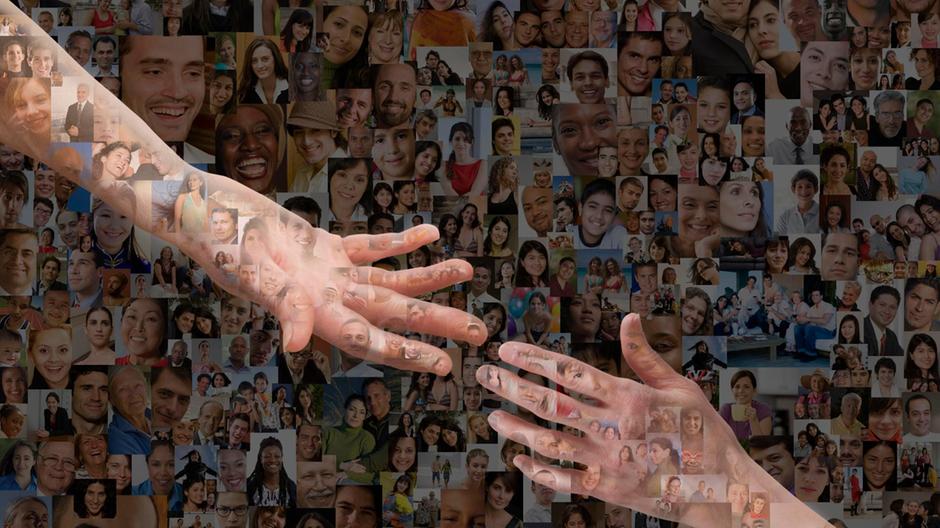Source – https://www.thenationalnews.com/
Imagine if funding and donating to an NGO or a cause anywhere in the world was as easy as ordering on Amazon. With today’s technology and integration of information, and a little bit of work filling in the gaps, this is doable.
Philanthropy has seen many efforts through initiatives such as, for example, the Giving Pledge, a commitment by ultra-high-net-worth individuals to donate the majority of their wealth, to reach donors and expand giving. While these efforts are essential, more is needed to reach smaller classes of donor and to help them connect with credible causes that match their interests easily.
With the Covid-19 crisis revealing deep structural and social inequalities across the globe, philanthropy and philanthropic dollars need to be optimised to help mitigate the urgent health, economic, social and fiscal impact of the pandemic. A collective humanitarian response that can make targeted giving easier for large donors while harnessing the power of smaller, informed donors is now more critical than ever.
There is a way to achieve this, through the development of a cloud-based philanthropic platform that utilises artificial intelligence to amalgamate credible data on global needs and global giving into easily accessible and comprehensible information that donors can act upon. Such a platform could allow donors to filter their searches on location, themes, organisation size and charity ratings, as well as funding gaps.
Where policy responses fall short and gaps in the allocation of urgent funding exist, an AI-centred philanthropy data platform could allow donors to respond to economic and social challenges based on reliable, real-time global data and analysis.
AI technology is already used as a tool to advance efficiency and growth in businesses. Companies like Netflix and Amazon use AI recommendations to match offers to individual preferences and purchases and to inform content development, optimising their profits.
Similar technology, albeit for the purpose of global common good could be used to ensure that supply of philanthropic donations meets the demand for support while improving transparency and accountability. AI in the form of a recommendation engine could, for example, match donor criteria from themes to locations to ratings and NGO partners with causes via the philanthropic platform.
A 2018 report on private philanthropy by the Organisation for Economic Co-operation and Development (OECD) found that only 28 per cent of funding benefitted the least developed countries. The data shows that private development financing is largely bypassing the most vulnerable. Moreover, financing often misses the actual needs of local communities, as funding is likely to be allocated without the weigh-in and participation of local charity or NGO staff. By logging onto an online platform, philanthropists and individual donors could see where giving is capped or in excess, enabling them to invest where they care while matching needs on the ground and maximising the impact of their investments.
Data and analysis made available through AI recommendations could also fill gaps in available information needed to inspire potential investors. It could also provide a feedback loop for NGOs on what they can do to improve their standing. In addition, philanthropists and individual donors could use AI recommendations to give directly to causes that they care about, reducing reliance on intermediary organisations to distribute funds. That would allow for more opportunities to directly engage with beneficiaries.
Implementing AI to optimise giving within the philanthropic sector is not a new idea. NGOs and campaigns around the world are already using it to enhance the impact of their activities. Examples include platforms like Philanthropy.ai and organisations like WaterAid, which use AI recommendations to connect donors with beneficiaries and causes around their respective work.
While these efforts demonstrate the benefits of AI for specific philanthropic activities, a cross-sector, collaborative approach is needed to fully harness the benefits of AI beyond individual causes and for the sector as a whole. An AI-centred, cloud-based platform has the potential to address this need by engaging stakeholders invested in philanthropy across sectors in an unprecedented, real-time mapping of the philanthropic landscape.
Such a platform could also expand the pool of available data, and help to ensure that new philanthropic investments build on existing successful interventions by securing the buy-in and input of stakeholders across sectors. Qualitative data made available on the platform could also serve as a valuable resource for campaigns like the Giving Pledge and inter-governmental partners like the OECD, providing them with lessons to direct their interventions and greater visibility to promote their activities.
Finally, the platform itself could allow a virtual space for philanthropists, individual donors, NGOs, intergovernmental organisations and other partners to connect, exchange lessons and explore collaboration and co-funding opportunities to strategically drive investments and direct support where needed.
A joint effort and long-term commitment from a broad range of members of the philanthropic community is needed to develop a platform like this, and to provide the inputs that AI could use. It will require the leadership of a credible international organisation, the collaboration of tech companies and input from local and international NGOs and inter-governmental organisations.
Following the development phase, vetted local chambers of commerce, foundations, local NGOs and bilateral organisations would need to collect data on philanthropic support and feed the data to the AI in an organised way, such as through the use of tags.
Of course, there are drawbacks to using AI technology and challenges that should be mitigated during the development and implementation phases. Nonetheless, with the scale and complexity of humanitarian crises growing and the primary and secondary impacts of the Covid-19 pandemic looming, AI has the potential to empower philanthropists and individual donors while strengthening the world of giving to meet the challenges ahead.
